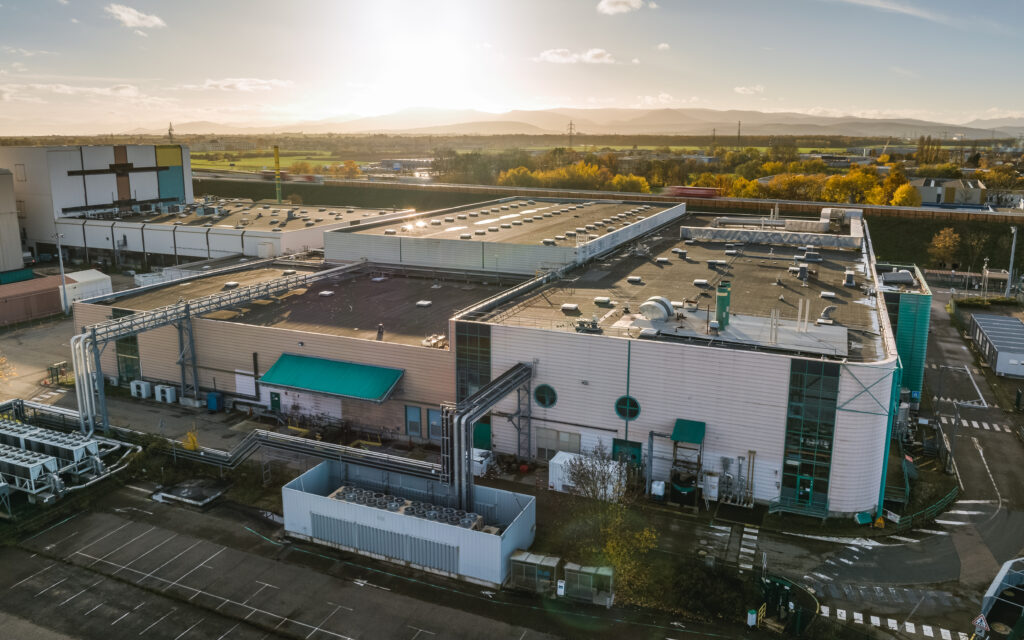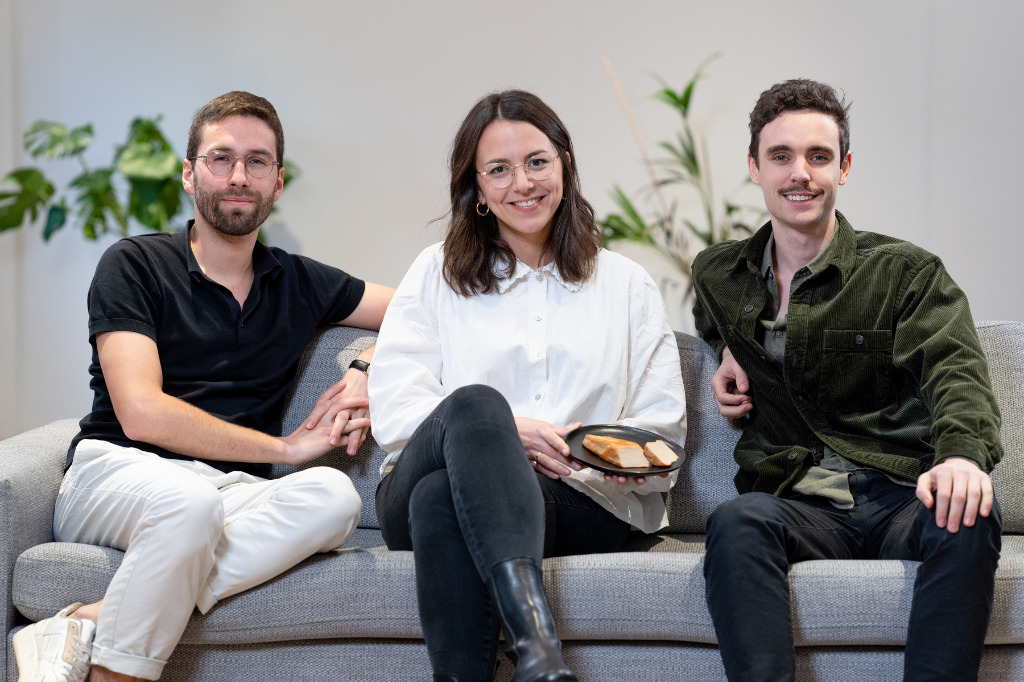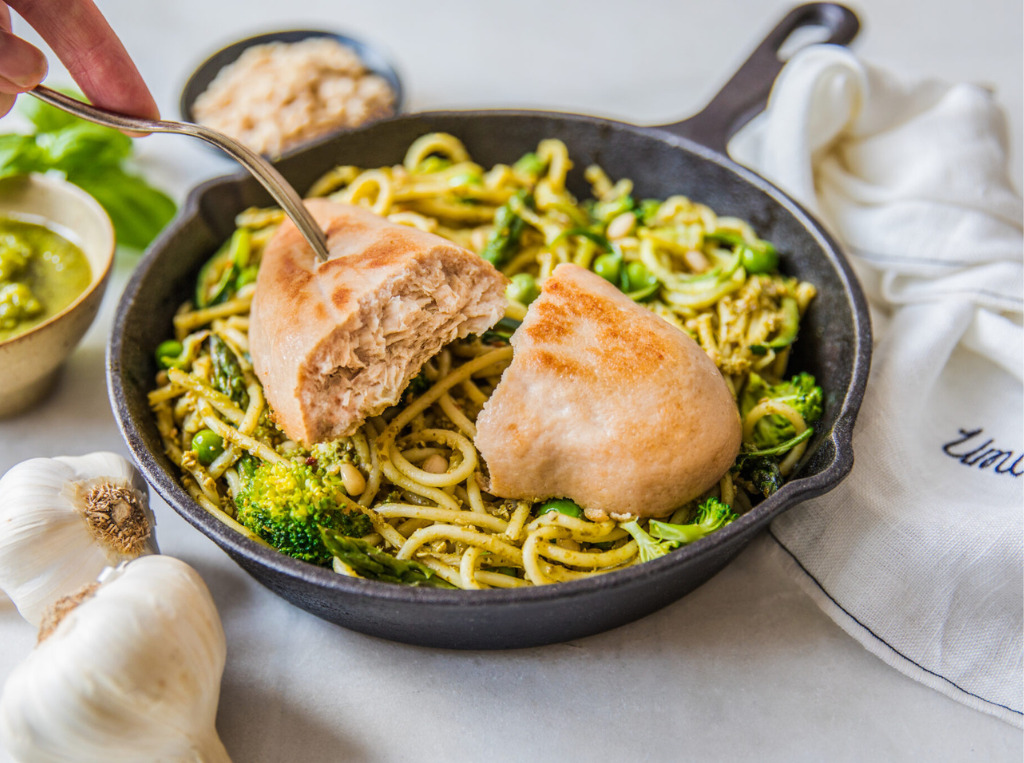Whole-Cut Plant-Based Poulet: France’s Umiami Adds Extra $34.7M to Series A Round for EU Expansion & US Launch
5 Mins Read
A year after securing $30M in a Series A fundraiser, French plant-based whole-cut chicken producer Umiami has reeled in a further €32.5M ($34.7M) to scale up its production, accelerate European distribution and set up its US operations.
With the latest cash injection which brings the total Series A round to €59M ($62.8M), the three-year-old company has now secured over €100M ($107M) in total investment, including non-dilutive funding and public sector grants. The fresh round of financing was led by returning investors the Sociétés de Projets Industriels (SPI) fund and French Tech Seed – both managed by Bpifrance for the French government as part of the France 2030 economic investment plan. Other participants comprised Astanor Ventures, Redalpine, Newfund (all historic investors) and VERSO Capital.
The investment will help Umiami with three key objectives. It plans to boost the production of its proprietary plant-based meat texturising tech, “umisation”. It uses this method to create its flagship whole-cut vegan chicken breast, and claims the tech “perfectly mimics the taste and texture of meat and fish, with equivalent nutritional value”. Umiami adds that the resulting meat alternative would contain under 10 ingredients, and be free of texturising agents or “controversial additives”.
“Umisation is an innovative protein texturing technology that is unique and specific to Umiami. It is the world’s first-ever process to be able to create – on a large scale – plant-based fillets that resemble pieces of animal meat: both in taste and texture,” a brand spokesperson told Green Queen. “This technology is the result of several years’ research and development, and uses plant matrices to produce a fibrous texture and control the size, direction and thickness of the resulting fibres.”
They added: “As well as producing better texture, umisation has the advantage of offering a minimally processed product from a very short list of ingredients. The procedure now makes it possible to produce a whole, 100% plant-based thick fillet, with fibres resembling those of meat and reproducing that unique, gourmet sensation mouthfeel.”
A new manufacturing facility

The company has been operating in an R&D pilot plant in the Paris region since last year and announced the acquisition of a 14,000 sq m Unilever site near Strasbourg in France’s Alsace region in December. The new facility is slated to open in the coming months, the brand spokesperson confirmed, and boasts a capacity of 7,500 tons per production line, with the potential of reaching 20,000 tons.
Umiami outlined its goal to be at the centre of the region’s reindustrialisation and creation of local jobs and confirmed that it will also be investing in its existing R&D plant near Paris, which currently has a capacity of 100 tons, and has hosted “advanced trials involving a comprehensive range of consumers”. The company now plans to expand its range to include more alt-meat products.
“Playing a part in the industrialisation of a start-up like Umiami is fully in line with the SPI fund’s raison d’être,” said Jean-Philippe Richard, deputy director of the SPI fund. “Thanks to its unique technology, Umiami is offering an upmarket range of plant-based fillets. It enables us to boost reindustrialisation in France while enhancing the country’s reputation for agri-food expertise internationally through the development of cutting-edge initiatives serving healthy, traceable food with a low carbon footprint.”
European expansion and an American dream

The second objective of this new funding round is to help Umiami with further expansion in Europe. While it has been active in retail and foodservice sectors in France, Belgium, the Netherlands, Spain and Italy under a white label, it launched under its own brand name for the first time at 120 Coop stores in Switzerland in August. Now, it plans to announce more restaurant and retail partnerships next year. (Umiami told Green Queen that the number of current outlets isn’t available yet.)
Finally, Umiami also plans to break into the US market with its chicken fillet, which it calls a “more developed market for plant-based meat alternatives”. To facilitate this move, the company has recruited FMCG veteran John Hatto (previously PepsiCo and Lamb Weston) as its US managing director.
In a joint statement, Umiami co-founders Tristan Maurel (CEO) and Martin Habfast (export director) said: “We are determined to bring our innovation to American consumers. With our exceptional team and cutting-edge technology, we’re ready to shape the future of food tech.”
France’s tricky relationship with plant-based meat

The news comes on the heels of setbacks for the plant-based meat industry in France. Last month, government officials submitted a proposal to the EU Commission for an unprecedented ban on the use of meat-related terms on plant-based meat labelling, reigniting a long-standing saga (with similar developments internationally). This wasn’t long before its agricultural minister pushed a pro-factory-farming stance by calling for the production of cheaper meat.
When asked about the ban, the spokesperson said: “Umiami is committed to communicating openly with consumers and ensuring that they are not misled in any way.” And pressed on the factory farming news, they said the brand “does not currently hold a position on this topic”.
In the wake of this proposed ban, French retail giant Carrefour formed a coalition with corporations like Unilever and Danone to promote the production of plant-based food in the country, pointing to the country’s growing number of flexitarians as signs of the industry’s growth. A 2021 Kantar World Panel study found that 49% of French households had at least one flexitarian among them – almost double the 25% figure in 2015.
According to the alt-protein think tank the Good Food Institute Europe, France is the continent’s fifth-largest plant-based market, with sales increasing by 5% between 2020-22. Alt-meat sales, in fact, grew by 17% in this period. A survey conducted last year found that one in five (22%) French consumers included more plant-based proteins in their diets from 2021-22, while 41% considered vegan food the third most important protein source, after meat and eggs (but above fish).
“We are extremely proud of the huge success of our Series A, and of the confidence that our investors and partners have placed in us,” said Maurel and Habfast. “This round of funding will enable us to continue our mission to revolutionise the food industry by offering sustainable and tasty alternatives to meat-based products.”



